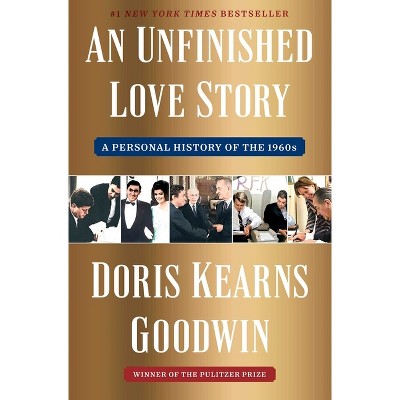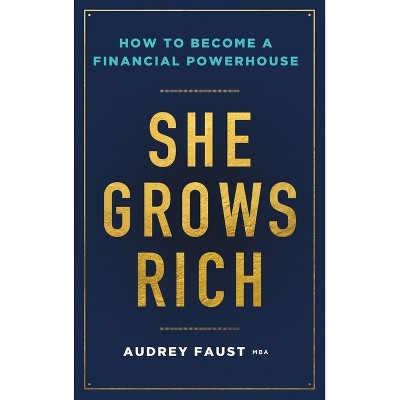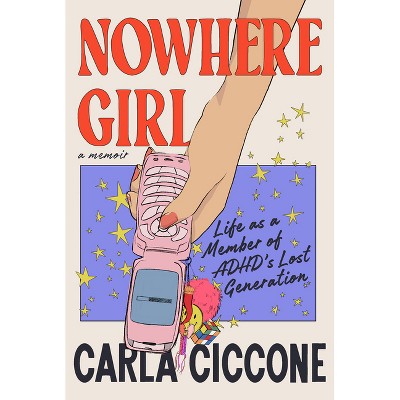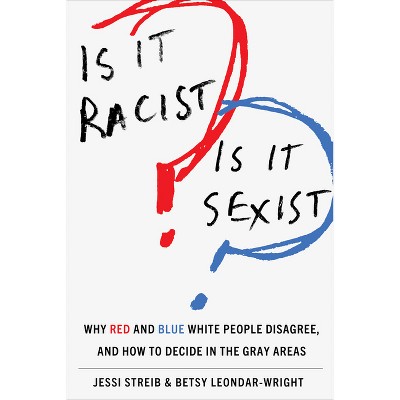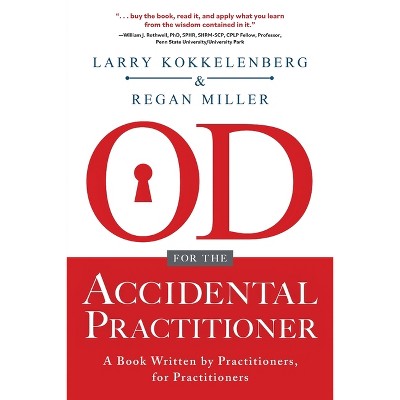Sponsored

The Accidental Equalizer - by Jessi Streib (Hardcover)
$27.50
In Stock
Eligible for registries and wish lists
Sponsored
About this item
Highlights
- A startling discovery--that job market success after college is largely random--forces a reappraisal of education, opportunity, and the American dream.
- About the Author: Jessi Streib is associate professor of sociology at Duke University.
- 256 Pages
- Social Science, Sociology
Description
About the Book
"Though equality is one of the most dearly cherished and proudly proclaimed ideals of our nation, you don't have to look far to see that we not only fall short of it, inequality often grows from one generation to the next. But what if I were to tell you that an egalitarian system has been hiding in plain sight? In this project, Duke sociologist Jessi Streib puts forward a new and bold conclusion: a college degree is the greatest economic equalizer because graduates enter a job market in which success is based on luck. Streib shows that among students who meet a low bar of employability-in particular business majors at a non-elite public university-people from different class backgrounds receive equal pay because luck determines who earns how much. So how do employers for these middle-class jobs manage to short-circuit our unequal system? They do it above all through a strategic use of ignorance: the sector and jobs Streib studied offer very little information to applicants. For instance, some employers pay significantly better than others, but job applicants have no way of knowing which ones offer higher salaries. What's more, evaluation criteria for jobs are not advertised and are incredibly variable. While some hiring managers prefer bubbly, chatty candidates, some prefer candidates who are circumspect and serious. Even seemingly objective criteria didn't get candidates ahead: Streib found that mid-tier employers focused on who could do the job, not on who completed the most internships or where they developed their skills. Even class background seemed to have little influence over a candidate's likelihood of getting a job-hiring managers didn't care whether a candidate's leisure activities were expensive or free. The advantages that applicants access once they're hired extend beyond their salaries: they receive equal access to mentoring and professional growth opportunities, and these advantages carry through into subsequent jobs. Streib's deep dive into the luckocracy uncovers its many faults and advantages, all while suggesting how we can create better and fairer opportunities for everyone"--Book Synopsis
A startling discovery--that job market success after college is largely random--forces a reappraisal of education, opportunity, and the American dream. As a gateway to economic opportunity, a college degree is viewed by many as America's great equalizer. And it's true: wealthier, more connected, and seemingly better-qualified students earn exactly the same pay as their less privileged peers. Yet, the reasons why may have little to do with bootstraps or self-improvement--it might just be dumb luck. That's what sociologist Jessi Streib proposes in The Accidental Equalizer, a conclusion she reaches after interviewing dozens of hiring agents and job-seeking graduates. Streib finds that luck shapes the hiring process from start to finish in a way that limits class privilege in the job market. Employers hide information about how to get ahead and force students to guess which jobs pay the most and how best to obtain them. Without clear routes to success, graduates from all class backgrounds face the same odds at high pay. The Accidental Equalizer is a frank appraisal of how this "luckocracy" works and its implications for the future of higher education and the middle class. Although this system is far from eliminating American inequality, Streib shows that it may just be the best opportunity structure we have--for better and for worse.Review Quotes
"An in-depth analysis of a key mechanism explaining why we observe social origin equalization for early labor market outcomes among college graduates."-- "American Journal of Sociology"
"A thought-provoking exploration of how various factors (often beyond one's control) influence career trajectories and financial outcomes. . . An insightful analysis of the role of luck in career outcomes."-- "School Administrator"
"The book is packed with sociological thinking rather than sociological theories and concepts. It is well written and should provide undergraduates with many insights about all career phases, from the job search to the separation. Undergraduates will have many of their assumptions challenged, especially that inequalities at work may not be based on connections, skills, information, or knowledge, but on luck. 'Luckocracy' may be difficult to face. However, Streib makes a compelling argument that luck plays a larger role in decision-making than students have been taught to believe."-- "Choice"
"[Streib] examines an important segment of the labor market that gets relatively little attention: entry-level positions for midtier jobs . . . Far too much energy and ink are spent on who gets the most elite jobs, who goes to the most elite schools and how terribly unfair the whole process is. Little of that conversation describes the reality for most Americans. The role of the good-but-not-elite college affects far more people and gives us much more insight into the state of economic mobility than Ivy League statistics."-- "Wall Street Journal"
"One of the biggest myths out there is that the job market, unlike other spheres of life, rewards merit. But it largely rewards luck. Most employers in large mid-tier markets are not seeking excellence. They just want reliable people who can do the job. And that is, in many ways, a good thing, argues sociologist Jessi Streib."-- "Los Angeles Review of Books"
"Based on hundreds of interviews with business school graduates and the employers that subsequently hired them, Streib's book ultimately argues that college is not, in itself, the great equalizer; the impossible-to-navigate job market is."-- "Inside Higher Education"
"Do children born into rich families always make more money than their less privileged counterparts? No! Streib shows that the market for college graduates is a booming-buzzing confusion of idiosyncratic standards, misinformation, and rushed decision-making--all of which undermine the iron law that 'class matters.' A striking demonstration that illicit advantage can be countered, provided that one's willing to infuse the market with lots of noise, luck, and chaos."--David B. Grusky, coeditor of 'Inequality in the 21st Century: A Reader'
"That working-class students from state universities do just as well in the job market as better-off students is a remarkable outcome. Even more surprising is that the equalization is actually driven by hiring practices that are so opaque that the graduates are basically flipping coins trying to get hired. Streib's findings are enormously important for the 80% of all college students who attend those universities and the rocky start it gives their career."--Peter Cappelli, author of 'Will College Pay Off?: A Guide to the Most Important Financial Decision You'll Ever Make'
"We now know that a college education can limit inequalities related to class origin, but very few scholars have tried to explain why. Streib's engaging, provocative account seeks to answer this question. Rare is the book that challenges well-established beliefs shared by academics and policymakers. This one delivers."--Jake Rosenfeld, author of 'You're Paid What You're Worth: And Other Myths of the Modern Economy'
About the Author
Jessi Streib is associate professor of sociology at Duke University. She is the author of two books, including Privilege Lost: Who Leaves the Upper-Middle-Class and How They Fall.Dimensions (Overall): 8.5 Inches (H) x 6.2 Inches (W) x 1.2 Inches (D)
Weight: 1.05 Pounds
Suggested Age: 22 Years and Up
Number of Pages: 256
Genre: Social Science
Sub-Genre: Sociology
Publisher: University of Chicago Press
Theme: General
Format: Hardcover
Author: Jessi Streib
Language: English
Street Date: November 16, 2023
TCIN: 1006099727
UPC: 9780226829319
Item Number (DPCI): 247-49-1629
Origin: Made in the USA or Imported
If the item details aren’t accurate or complete, we want to know about it.
Shipping details
Estimated ship dimensions: 1.2 inches length x 6.2 inches width x 8.5 inches height
Estimated ship weight: 1.05 pounds
We regret that this item cannot be shipped to PO Boxes.
This item cannot be shipped to the following locations: American Samoa (see also separate entry under AS), Guam (see also separate entry under GU), Northern Mariana Islands, Puerto Rico (see also separate entry under PR), United States Minor Outlying Islands, Virgin Islands, U.S., APO/FPO
Return details
This item can be returned to any Target store or Target.com.
This item must be returned within 90 days of the date it was purchased in store, shipped, delivered by a Shipt shopper, or made ready for pickup.
See the return policy for complete information.



